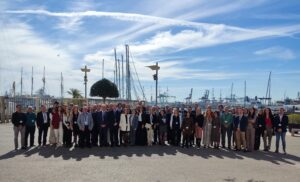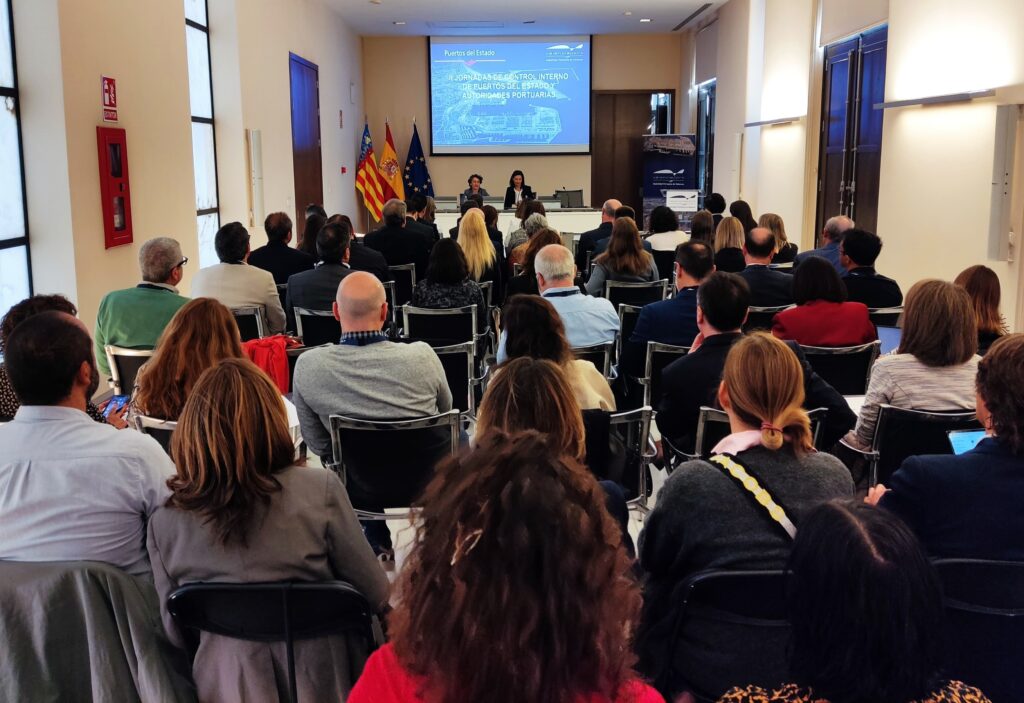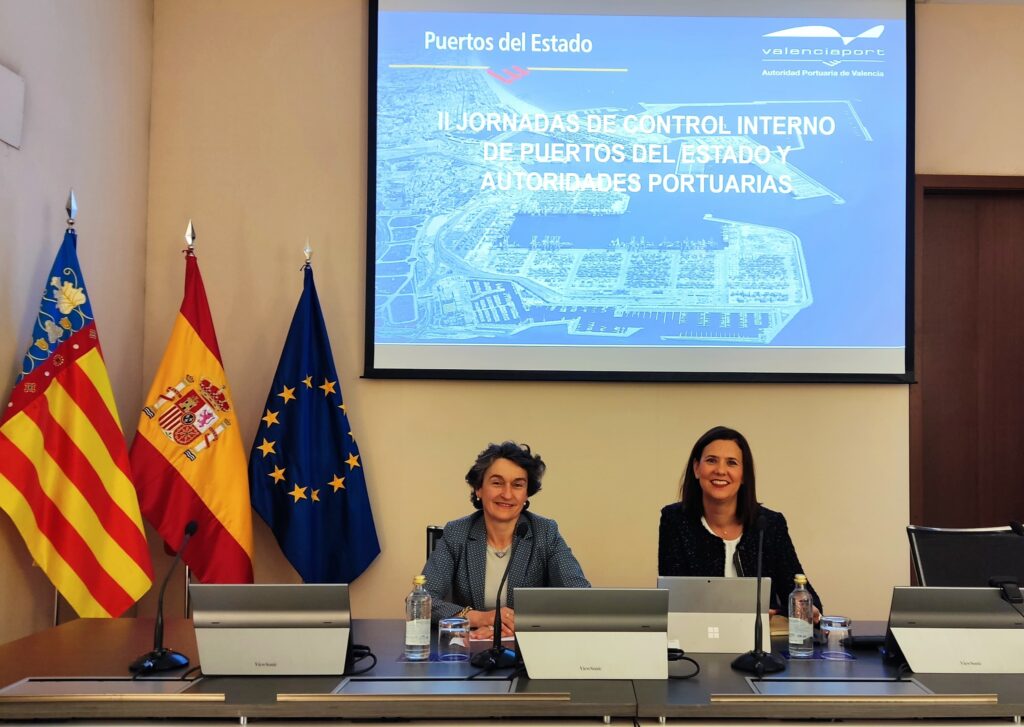
- More than 70 heads of Audit and Internal Control from 26 Spanish Port Authorities and Puertos del Estado will meet today and tomorrow in the Clock Building to address the challenges of the Spanish Port System from a governance model based on the culture of control, ethics and integrity
- The Port Authority of Valencia (PAV) thus takes over the organisational baton from Puertos del Estado with the aim of facilitating the learning of procedures, instruments and strategies in the framework of prevention and control of regulatory compliance
- The internal control plans, the review of the management of European funds and subsidies -especially MRR funds-, the tools for the fight against fraud and corruption, the internal communication systems are some of the other aspects that will be dealt with in depth during this conference
València, 25 April 2024.- Valenciaport is hosting the 2nd Conference on Internal Control of State Ports and Port Authorities on 25 and 26 April. Under the name ‘The culture of control, ethics and integrity in the Spanish Port System’, more than 70 managers from 26 Spanish Port Authorities and Puertos del Estado will meet to study, propose and discuss efficient formulas to address the challenges of the Spanish Port System from a governance model based on control, integrity and ethics.
The Port Authority of València (PAV) thus takes over the organisational baton from Puertos del Estado with the aim of facilitating the learning of procedures, instruments and strategies in the framework of prevention and control of regulatory compliance and to establish common lines of work. The aim is to contribute to the improvement and development of the culture of control and good governance in the Spanish Port Authorities.

The inauguration of the conference was led by the president of the PAV, Mar Chao, and the Corporate Director of Puertos del Estado, Pilar Parra. Mar Chao highlighted the value of the content to be developed in this meeting because “by focusing on the core business and maritime-port management, we must consider the values of integrity in our actions, protecting the creation of value and the public assets we manage”.
The president also stressed that: “at the PAV, the culture of continuous improvement and management control is fundamental, if we want to continue to be a leading port we have to apply robust management systems. Functions such as internal control, auditing and regulatory compliance are cornerstones of our organisation”.

For her part, Pilar Parra, introduced the keys to the current context marked by a profound transformation of logistics and international trade and spoke of the importance of establishing within the strategic framework a model of Governance which promotes in equal proportion an optimal and resilient management in all dimensions: economic, environmental and social.
“The ports must lead the changes in the framework of the energy, digital and industrial transformation – among others – we must lead the processes and be an example for the public administrations, become models of ethics and integrity”, said Pilar. To which she added that “the financial self-sufficiency of each port is essential, strictly following the criteria that govern the activity: efficiency, connectivity, digitalisation, innovation, sustainability, security and transparency”.
For Parra, the Port Authorities must create added value in all dimensions with the aim of improving competitiveness by using appropriate tools to meet the challenges of the market. “In this sense, the model applied for the construction of the North Terminal of the Port of Valencia is an example in which risks have been minimised, as a public tender was held for its operation before starting up the work. This guarantees the success of the investment and the return”. During the rest of the day today and tomorrow, those responsible for Internal Control and Port Auditing will examine in depth the keys to internal control plans, the review of the management of European funds and subsidies – especially MRR funds -, the tools for the fight against fraud and corruption, and internal communication systems.

